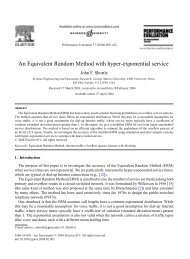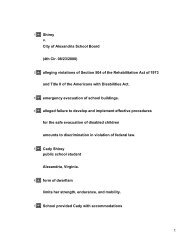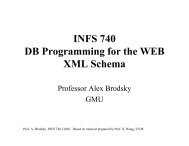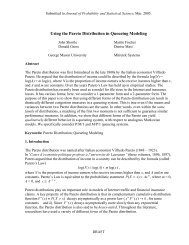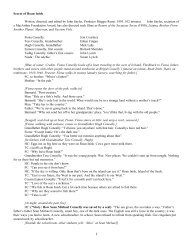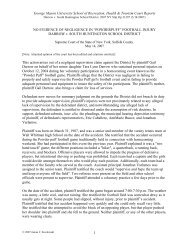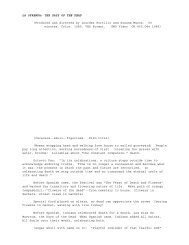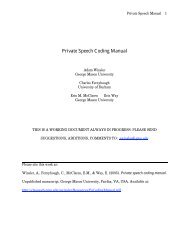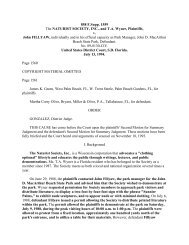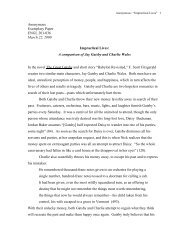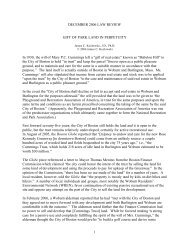AFTER VIOLENCE: 3R, RECONSTRUCTION, RECONCILIATION ...
AFTER VIOLENCE: 3R, RECONSTRUCTION, RECONCILIATION ...
AFTER VIOLENCE: 3R, RECONSTRUCTION, RECONCILIATION ...
Create successful ePaper yourself
Turn your PDF publications into a flip-book with our unique Google optimized e-Paper software.
wounds to the spirit never, as psycho-analysis informs us.<br />
Sexualized violence may leave no wound on the body, but<br />
irreversible trauma on the spirit. The same applies to all forms<br />
of violence to the body as any violence is violation, invasion of<br />
the sanctum, the privacy of the body; sexualized violence doubly<br />
so. To some extent this also applies to property as body<br />
extension, and to burglary as invasion of the family sanctum.<br />
The formula above opens for two additional approaches to<br />
guilt release: denial of any evil intent, and reversibility<br />
through restitution. Western jurisprudence seems to have<br />
developed more in the former direction, with pleas of ignorance,<br />
chronic and acute insanity in the moment of action, etc.<br />
And this in spite of the fact that even if harm wrought by<br />
crimes of violence and sexualized violence may be irreversible,<br />
the harm wrought by property crimes is not. Money can be earned<br />
and paid back, the house can be restored. There is the trauma of<br />
having had the property violated, but to this the nihil violentum<br />
durabile might apply. And destroyed cultural monuments might not<br />
be restorable at all because damage is symbolic, not only<br />
material. Is it because Christian repent your intent is that much<br />
stronger than the capitalist produce-and-consume?<br />
How does all of this change the moment X and Y are not<br />
individuals but collectivities, at war? Actually, everything<br />
mentioned above remains valid, with some terminology differences<br />
as when "restitution" is referred to as "reparation" after wars.<br />
But one difference is significant: a collectivity may be<br />
divided over the violent acts, as when both German and French<br />
troops mutinied against their generals at the end of World War I.<br />
34



